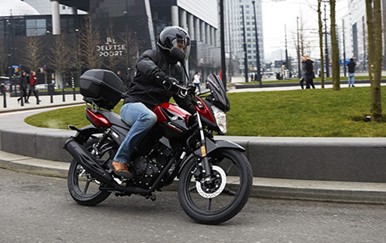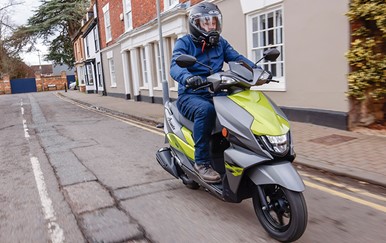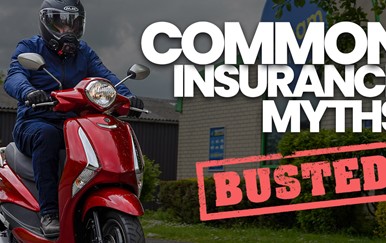Setting up a motorcycle insurance policy can be daunting, especially if you’re a new rider and many things can be easily overlooked. This makes it hard to know exactly how to get a cheaper insurance quote, and what to look out for when shopping around.
That’s why we’ve put together a useful list of things to remember when looking for insurance to ensure you get the best quote possible whether you’re a new or a seasoned rider.
So let’s get into it, shall we?
1. Fully Comprehensive isn’t always the best

One common misconception is that fully comprehensive coverage is always the way to go.
Now it’s not necessarily a bad thing to go down this route but think of it this way: as an example you bought £500 as a run-around, and you decide to take out an insurance policy with an excess totalling £500, this means that the policy wouldn’t pay out for anything further. In these instances it may be worth looking at a lower level of coverage.
2. How “No Claims” bonuses work
No Claims Bonus can be known under other names as well such as no claims discount, or shortened to NCD or NCB. You will earn no claims bonus depending on how long you have insured your bike elsewhere continuously without a claim - you would have built up 1 year of bonus per full year of uninterrupted cover, and will expire after 2 years if not used.
It’s important to find out exactly how many years of bonus you will have available before starting your quote. This is often forgotten when you have insured a bike for over 10 years and are not sure the exact amount of bonus proof your previous insurer will send you.
You are required to send over proof of your amount of no claims bonus available within 14 days from the new policy start date (this will vary between insurers, so it is essential that you check with each insurer you look at to see what their rules on NCB certificates are), this is to give you time to get the right documents sent over.
3. Know the bike information
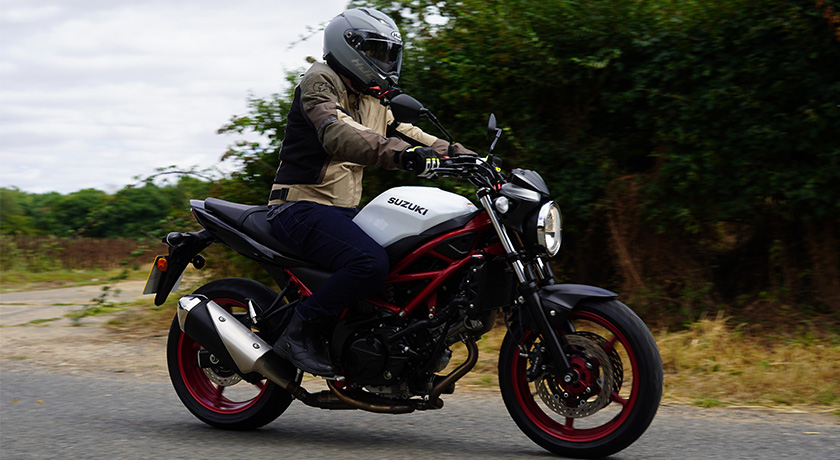
When going through your quote online or over the phone, simply having your full bike information to hand when completing your quote will help immensely.
Whether this is quoting over the phone or online, having the bike details with you (so the logbook, registration plate, date of first registration, current mileage, any modifications, and accessories) will speed up the quote process that bit more.
Make and Model
Typically, the more expensive and powerful your motorbike is, the more it will cost to either fix or replace it in the event that you make a claim.
Modifications and Accessories
When setting up your insurance, it is important that you remember to inform your insurers of any accessories or modifications on your motorbike.
To put it plainly, accessories are considered as anything that you add to your bike that will increase its value whereas modifications are considered as something that will alter the performance and/or handling of your bike.
It is essential that you declare all accessories and/or modifications made to your bike so your insurer can correctly insure it. If you do not report any additions accurately your insurance could be void and you would be unable to put a claim through in the event of an accident.
Mileage and Excesses
When filling out how many miles you intend to do within a year, it would be very wise to go through old MOT certificates in order to get a more exact idea of how many miles you will truly be doing on the roads. By being as accurate as you can, this will help you save yourself a little bit of cash.
Adjusting the excess amount is also another way you can reduce your policy premium. By increasing your voluntary excess, you can reduce the cost of your overall policy.
However, by doing this you will need to remember that you should always increase your voluntary excess by an amount you can realistically pay out in the event of an accident, instead of making your insurance policy as cheap as possible.
4. Know the rider information
Similar to having your bike information on hand, having copies of any other rider’s details with you will help speed up the process. Important bits like motorcycle licence dates, any claims and conviction history, date of birth for other riders… it’s nothing too strenuous but having these bits ready can get you through your quote much faster.
Be honest
First things first, when completing your insurance quotation form, you will need to be 100% accurate and honest.
Lying or deciding to not be entirely truthful when filling out your personal information is considered fraud and misrepresentation. If your insurer considers the information you have provided to not be a true representation this could result in your policy being cancelled or voided and you may struggle to find another insurer who will insure you.
Provisional licence
If you are riding on a provisional licence, it is important that you know the exact date on which you passed your CBT, as they are only valid for two years. Once this has expired, you will need to retake your CBT.
Advanced motorcycle training
One thing to note is that it is most definitely worth mentioning to your insurers if you have completed any advanced motorcycle training.
Again, different insurers will recognize different advanced training courses, and can potentially offer you discounts as a result.
Occupation
Now some people may or may not know this, but your occupation can and will affect your premium.
For example, if your job consequently means that you spend more time on your motorcycle in comparison to others, you could be deemed at a higher risk on the roads and consequently have a higher premium.
Location
The address in which you state on your insurance has to be your home address, regardless if you store your motorbike elsewhere.
Rules regarding where your motorcycle should be stored will vary between insurers, so it is important to read your policy documents thoroughly to see where you should be keeping your motorcycle. Failure to comply with this and in the event that your motorbike gets damaged or stolen, your insurers may refuse to pay out.
Drive a car?
When filling out motorcycle quotations, you will be asked whether or not you also drive a car. This is because your driving experience matters and some companies may use this information to get you a better quotation price.
Whether or not insurers will consider your driving experience will vary massively between insurers, so it definitely is well worth checking if it can save you a few pennies.
Accident, Claims and Convictions
Again, it is important that you inform your insurer of any accidents and claims you have been involved in, as well as any driving convictions regardless of whether these have happened when riding your motorcycle or another vehicle.
These three tend to have the largest impact on your insurance premium, and some insurers may choose not to insure you based on the severity of the events.
5. What motorbike security is best?
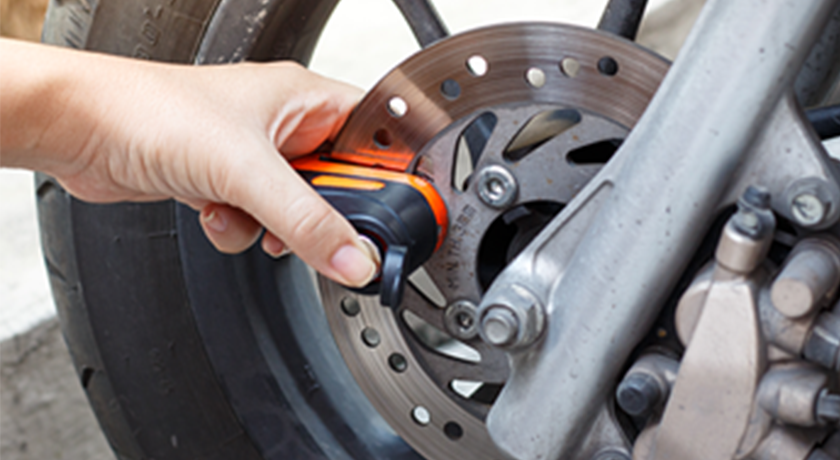
According to the Metropolitan Police, the best ways to secure your bike are using a chain through the back wheel and securing your bike to an immovable item such as a ground anchor or a lamppost.
Combining a chain, ground anchor and disc lock can make the dream team when it comes to security and protection. In addition, throwing a cover over the top can further help to hide what bike you have.
However, as we mentioned previously, different insurers will have different guidelines on how your motorbike should be secured overnight, so it is important to read your policy documents thoroughly to make sure you are compliant.
*For more on motorcycle security, please head over to our full motorcycle security guide*
6. Know your renewal date
This one may sound silly, but you should always make sure you know exactly when your current (or previous) policy expires. If there is an overlap you could be paying to insure the same bike in two different places at the same time.
So before you do anything, make sure you know exactly when you need your new cover to start, and plan your new policy well in advance (from 30 days)..
7. Take advantage of extras
Getting the quote over and done with is obviously a high priority, but making sure you’re fully covered is the goal. Before you get to the end of the quote, make sure you think about the other covers that can be included in your insurance policy.
Personal accident cover
Even the smallest accident can have an impact on your finances. If you are injured in the event of an accident and you are unable to attend work, personal accident cover can give you financial help when you need it most.
Breakdown cover
Breakdown cover, as the name suggests, covers when your motorbike has a mechanical breakdown and requires assistance. Without cover, breakdown callouts can be costly hence why so many people opt to protect themselves beforehand to save themselves from any unwanted bills.
Excess protection
With a Motor Insurance policy, there will often be an excess. The excess is the amount of money you’d have to pay in the event of a claim. Excess Protection has been designed so the excess is covered, and, in the event of a claim, your excess would be reimbursed.
Helmet and Leather cover
Helmet and Leathers cover protects your motorcycle clothing. So, should they be damaged in the event of a road traffic accident and you need to replace them, this covers up to £1000.
The benefit of Multibike Insurance
Whether you have a collection of scooters, motorcycles, or even a mix of both, insuring them all on one multi-bike policy can help you save money on insurance in comparison to individual policies.
How to check if you or your motorcycle is already insured?
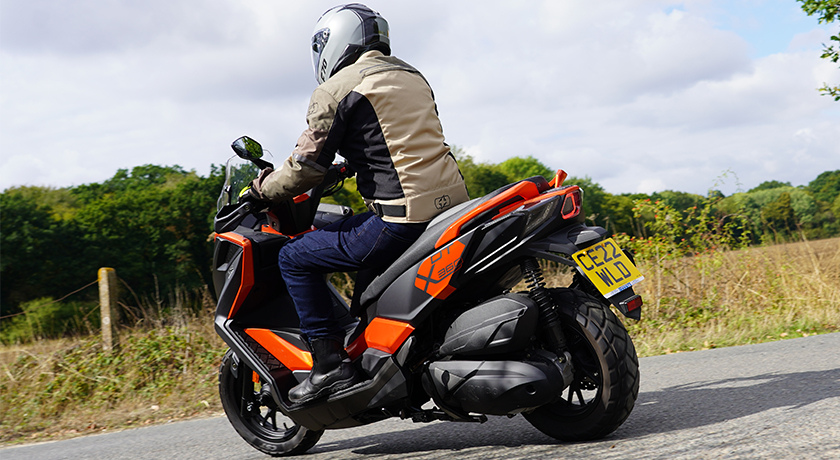
If you wish to check if your motorcycle is insured, you can do this via the Motor Insurance Database (MID).
If the MID has not been updated yet, you can check if you and your motorbike are insured by giving them a call. You should also receive official documentation from your insurer that will include an insurance certificate which can also confirm your bike is insured.
When you need to cancel your bike insurance
If you no longer use your motorbike, or you have sold it, you will need to inform your insurers.
If your policy is still running, you may continue the policy to help build up the no-claims bonus or avoid paying the cancellation fee.
However, if you choose to keep your insurance going and you sell your motorbike and an accident occurs, if the new rider hasn’t started their own insurance policy the claim can come back on you and affect both your no-claims bonus and claim history.
Honesty is the best motorcycle insurance policy
As we have mentioned throughout this article, it is essential that when completing your motorbike insurance quotation form, you must always be entirely truthful and honest or if this is deemed not accurate by your insurers the insurance cover you have could be declared void or cancelled.
Before you go...
So there you have it, I hope you enjoyed our article on everything you need to know when setting up an insurance policy.
Last but not least, if you have a motorcycle or moped you need to insure – make sure to get a direct online motorbike insurance quote with us here at Lexham!

